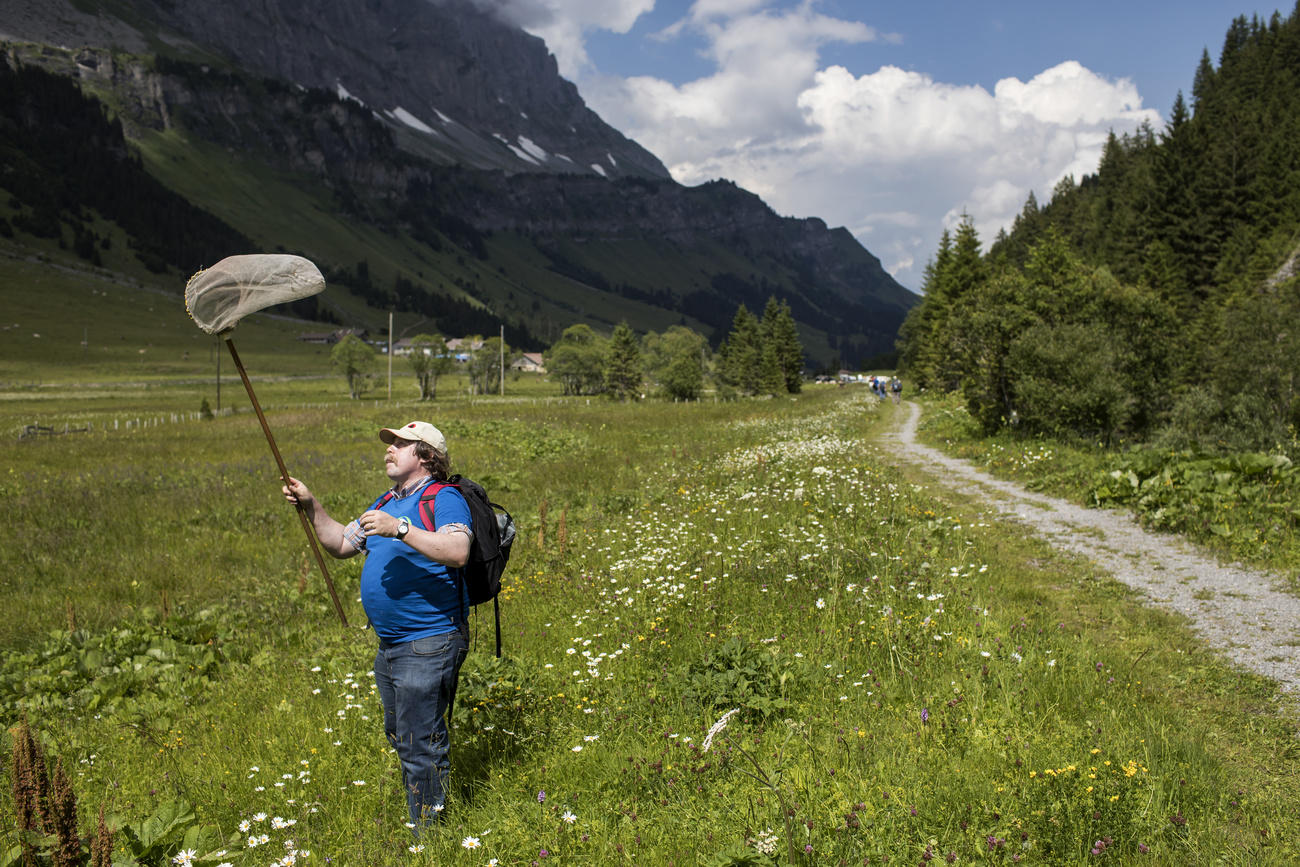
Research finds financial benefits of biodiversity

Farmers could increase their revenues by increasing biodiversity on their land according to a study by an interdisciplinary research team in Switzerland and Germany.
They were able to quantify the economic added value of biodiversity based on a grassland experiment that examined different intensities of cultivation, according to a statement by the Swiss Federal Institute of Technology ZurichExternal link (ETH Zurich).
The result of the research, which included agricultural sciences, ecology and economics, was published in the journal. Nature CommunicationsExternal link.
The researchers claim that biodiversity is an economically relevant factor of production. They argue that if 16 different plant species grow in a field instead of just one, the quality of the forage remains more or less the same, but the yield is higher – which directly correlates to the income that can be made from milk sales.
“The resultant increase in revenues in our study is comparable to the difference in yield between extensively and intensively farmed land,” says Sergei Schaub, lead author of the study.
Positive all over
He says biodiversity has an economically positive effect on all areas, regardless of whether farmers move and fertilise them four times a year of just once. However, the more difficult it becomes to maintain a high level of biodiversity, because only a few plant species can withstand fertilisation and frequent mowing, according to the researchers.
Swiss farmers already take more advantage of this economic effect than their counterparts in other countries, the statement adds.
“Biodiversity is also a kind of risk insurance,” says Nina Buchmann, professor of grassland science at ETH Zurich. Diverse grasslands are better off to cope with extreme events such as droughts or floods, according to her.
Switzerland has so-called ecological compensation areas, i.e., grasslands for which farmers pay particular attention to promoting biodiversity. However, these areas often have poor soils and the yields they produce cannot be compared with those of high-quality grassland.
The researchers were able to use data from the long-term Jena ExperimentExternal link, which – among other questions – compared different farming practices at the same site, according to the ETH Zurich press release.

More
The lost world of Swiss Alpine biodiversity

More
The grassroots fight for biodiversity

In compliance with the JTI standards
More: SWI swissinfo.ch certified by the Journalism Trust Initiative




























You can find an overview of ongoing debates with our journalists here . Please join us!
If you want to start a conversation about a topic raised in this article or want to report factual errors, email us at english@swissinfo.ch.